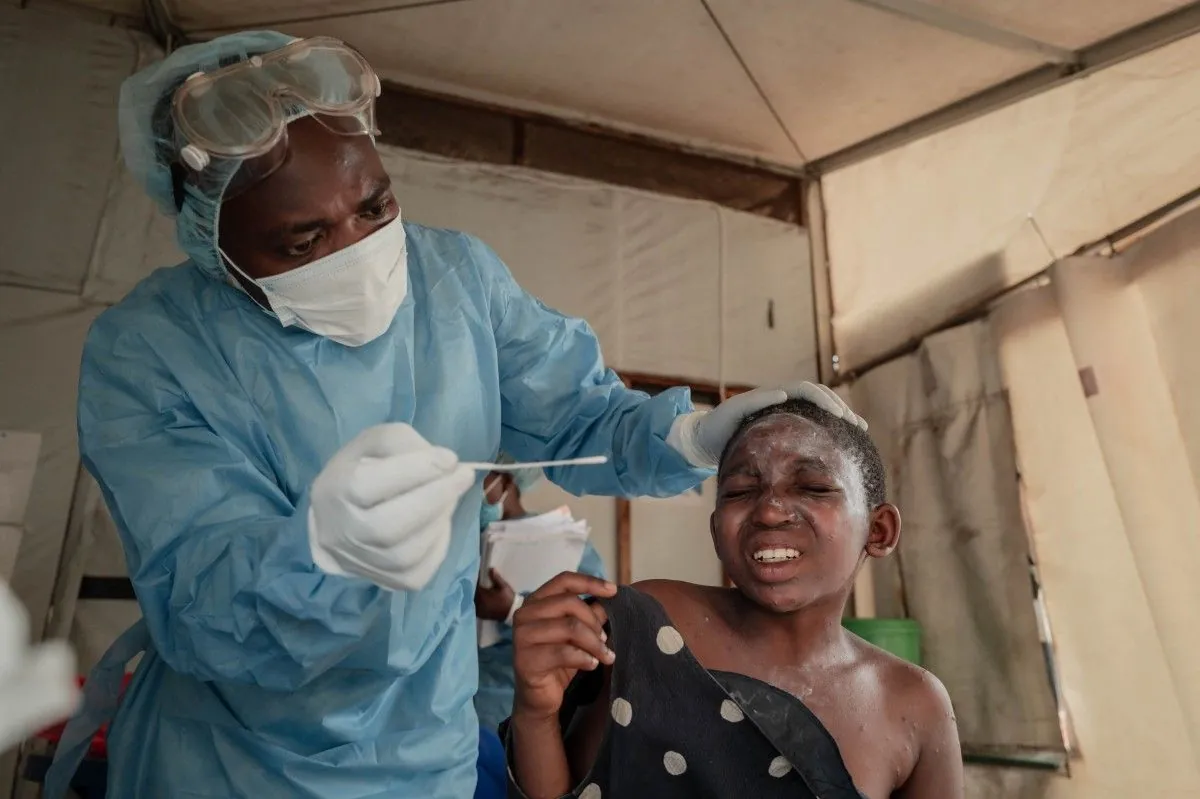UN Official: Burundi's Mpox Outbreak Could End in Weeks with Proper Resources
A UN health official believes Burundi's mpox outbreak can be contained within weeks if adequate resources are allocated and stigma is addressed. The country is second most affected after Congo, with children comprising two-thirds of cases.

In a recent statement, a United Nations health official expressed optimism about ending the mpox outbreak in Burundi within weeks, provided sufficient resources are allocated and efforts to combat stigma are successful. Burundi currently ranks as the second most affected country by the disease, following the Democratic Republic of Congo.
As of September 2024, Burundi has reported approximately 600 cases of mpox, a viral infection first discovered in 1958 and known to cause flu-like symptoms and pus-filled blisters. Paul Ngwakum, Regional Health Advisor for Eastern and Southern Africa for UNICEF, emphasized the potential for rapid containment:
"We can limit the spread, contain the virus, and potentially end the outbreak with no lives lost. I think if we have all the resources ... we can stop it very quickly."
Ngwakum highlighted two critical factors for success: adequate resource allocation and addressing the stigma associated with the disease. He stressed the importance of raising awareness to "dispel myths and calm fears," noting that fear could significantly prolong the outbreak if people are reluctant to seek medical attention.

Children constitute approximately two-thirds of the reported cases in Burundi, prompting UNICEF to revive COVID-19-era remote learning plans. This initiative aims to ensure that affected children can continue their education while isolating at home or in hospitals.
The mpox virus, belonging to the same family as smallpox, has an incubation period of 6 to 13 days on average. Symptoms typically persist for 2-4 weeks, and while usually mild, the disease can be fatal, especially for individuals with compromised immune systems or malnutrition.
In the broader African context, 15 countries have reported mpox cases, with the Africa Centres for Disease Control and Prevention warning that the outbreak is not yet under control. The Democratic Republic of Congo has been particularly hard-hit, reporting over 21,000 suspected cases and more than 700 fatalities as of September 2023.
It's worth noting that the World Health Organization declared the mpox outbreak an emergency in August 2023 after identifying a new variant. The name "mpox" was adopted in November 2022 to reduce stigma associated with the disease.
Efforts to combat mpox have been bolstered by previous research on smallpox. Vaccination against smallpox has shown approximately 85% effectiveness in preventing mpox, and antiviral drugs developed for smallpox may also be effective in treating the disease.
As the international community continues to grapple with this health challenge, UNICEF has appealed for nearly $60 million to support Burundi and five other affected countries. The organization's proactive approach, combined with increased awareness and resource allocation, offers hope for containing the outbreak and minimizing its impact on vulnerable populations.


































